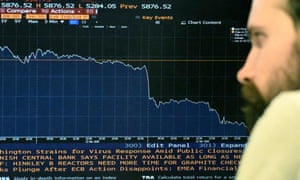Anne-Sylvaine Chassany in The FT
Top Ikea executive Jesper Brodin says he is not usually one to indulge in nostalgia. But at a pre-Christmas gathering for senior managers that used to work at the Swedish furniture group, he could not help but join with the chorus of those who said they missed the old times — when the world seemed relatively stable, trends were predictable and this could be translated into a more or less credible multiyear business plan.
“We always debate whether it was better before. I used to always argue it is better now. This time we tended to agree it was better before,” he said. “The risks, the uncertainty, everything that used to be in a ‘risk matrix file’ is more or less happening . . . We laugh about the time when we were doing one-year budgets, and how we would be right or wrong by 0.3 per cent.”
Brodin’s reflections resonate across the corporate world. CEOs are struggling to make sense of confusing macroeconomic signals. In Europe and the US, an economic downturn is combined with record low unemployment and labour shortages. Consumer behaviour is a mystery: up until recently people have kept spending even though the price of almost everything has gone up.
The worst predictions of economic crisis and energy shortages from last year have not materialised. But it feels uniquely hard to predict the path ahead at the moment. On both sides of the Atlantic, little consensus is heard about where the economy is going, and for listed businesses, delivering guidance to the market is more difficult than ever. In the UK, auditing firms worry that the forecasts their corporate clients submit to them for sign-off are impossible to assess.
In the game of adjusting to these new forms of chaos, some are better placed than others. Generally pressure is less on privately owned companies that do not have to publish profit targets.
Ikea, for instance, has changed tack. Instead of setting out specific goals for the year, it has a set of “scenarios” to give the business wiggle room as the outlook changes. It means acknowledging that widely different outcomes are possible. “It’s teaching us agility in how we operate,” said Brodin.
A year ago, the 54-year-old firm expected customers to cut spending because of high energy bills and mortgage rates. That did not happen. Meanwhile, supply chain disruptions improved more quickly than anticipated, leaving the group with more inventory and, in turn, the need to lower the prices of some of its products.
“We are celebrating that things are going in the right direction,” said Brodin, “but we have no concept of predicting with precision what’s going to happen in 6 to 12 months.”
For Ikea, input costs are the trickiest to forecast. Transport prices have fallen. But Brodin did not expect that greater demand for wood to burn as fuel would make some of the company’s materials more expensive.
It is not just the traditional variables of financial modelling such as inflation and consumer spending that have become harder to predict. The past few years have also provided some unexpected lessons on how business and society cope with shocks and uncertainty.
“Look at what people have gone through: the pandemic, the economic damage, the tragedy of war, energy prices,” Brodin said. “What people might have underestimated is human resilience.”
